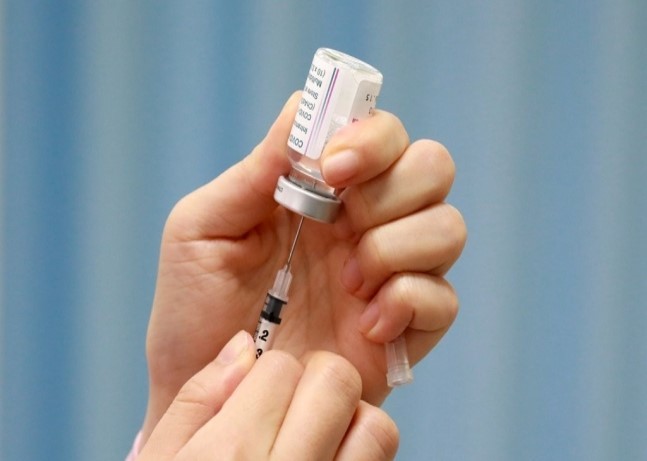
yonhap
South Korea has paused AstraZeneca COVID-19 vaccinations for people younger than 60 following a third case of blood clotting in a recipient.
The latest case was a previously healthy medical worker in her 20s who came down with blood clots in her lung and her leg about two weeks after her vaccination, the Korea Disease Control and Prevention Agency told reporters in a closed door briefing.
The decision to withhold the vaccine’s use for younger populations will likely strike a blow to the country’s vaccination program that currently relies on vaccines from only two companies, AstraZeneca and Pfizer.
Korea has 3.37 million doses of the two vaccines combined, with more than one million doses administered so far. The AstraZeneca supplies were to go to essential workers including early childhood educators, flight attendants and non-coronavirus nurses, while those of Pfizer were reserved for people aged 75 or older.
The International Vaccine Institute’s director general Dr. Jerome H. Kim said the risk-benefit equation “would favor the reverse -- Pfizer in younger, AstraZeneca in older -- especially in light of reported efficacy of the AstraZeneca vaccine in older people.”
On the shot’s age-related suspensions, he said that although the benefit of vaccination remains, “The vaccine may be more beneficial in populations with higher risk of poor outcomes from COVID-19.”
Kim said health authorities here were facing “the difficult task of evaluating both the clotting events in Korea and data being provided by groups evaluating this problem elsewhere in the world -- Europe and the UK -- where many more people have received the AZ vaccine.”
Infectious disease professor Dr. Kim Woo-joo of Korea University agreed weighing the benefits against the risks appeared to be more complicated for younger people who aren’t at great risk of severe complications from COVID-19 themselves.
“For people under 60 the fatality rate from COVID-19 is less than 0.1 percent. But the rate of blood clot events after AstraZeneca vaccination is slightly higher than that,” he said.
“Public health authorities should assess the potential risks promptly, and decide if young people should be getting vaccines other than AstraZeneca’s.”
Korea now joins a growing list of countries that are only using the AstraZeneca jabs for older groups such as Germany, France, Netherlands and Canada.
Last month, Korea saw two cases of blood clots among people who took the AstraZeneca vaccine. One of them was a paramedic in his 20s who developed a rare clotting condition in the brain. The other one was a nursing home resident in her early 60s who died eight days after vaccination. Ensuing autopsy found clots in her leg.
As of Tuesday midnight, 887,452 people have received at least a single dose of the AstraZeneca vaccine. About 1.2 percent of them, or 10,674, have reported experiencing side effects. The majority were mild. Ninety-seven suffered anaphylaxis-like reactions; 20 were hospitalized; and 34 had fatal outcomes.
By Kim Arin (arin@heraldcorp.com)






